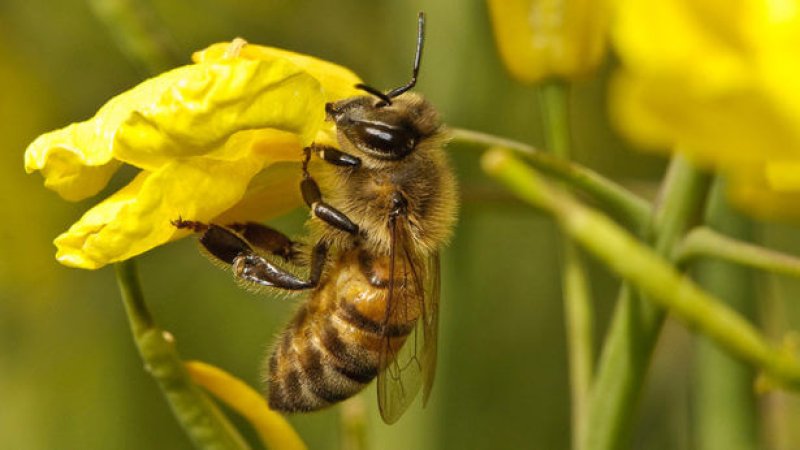Almost a quarter of British honey samples remain contaminated after a partial ban on neonicotinoid pesticides, new research has revealed.
The contamination rate has fallen – it was more than half before the ban – but the study shows that the potent insecticides remain prevalent in the farmed environment and still pose a serious risk to bees and other vital pollinators.
Neonicotinoids are the world’s most widely used insecticides but growing evidence of serious harm to bees led the EU to ban their use on flowering crops such as oilseed rape, starting in spring 2014. The new findings will add to pressure on the EU to ban all outdoor uses of the pesticides, with a vote expected in coming months. Neonicotinoids at the levels found in the honey are not known to pose any risk to human health.
Honey is seen as a good sample of the local environment and work published in October revealed global contamination by neonicotinoids, with 75% of samples from around the world containing the chemicals.
…
“[Our] results suggest mass flowering crops [such as oilseed rape] may contain neonicotinoid residues where they have been grown on soils contaminated by previously seed-treated crops,” the researchers said in their paper, published in the journal PLOS One.
Read full, original post: Quarter of British honey contaminated with bee-harming pesticides, research reveals































